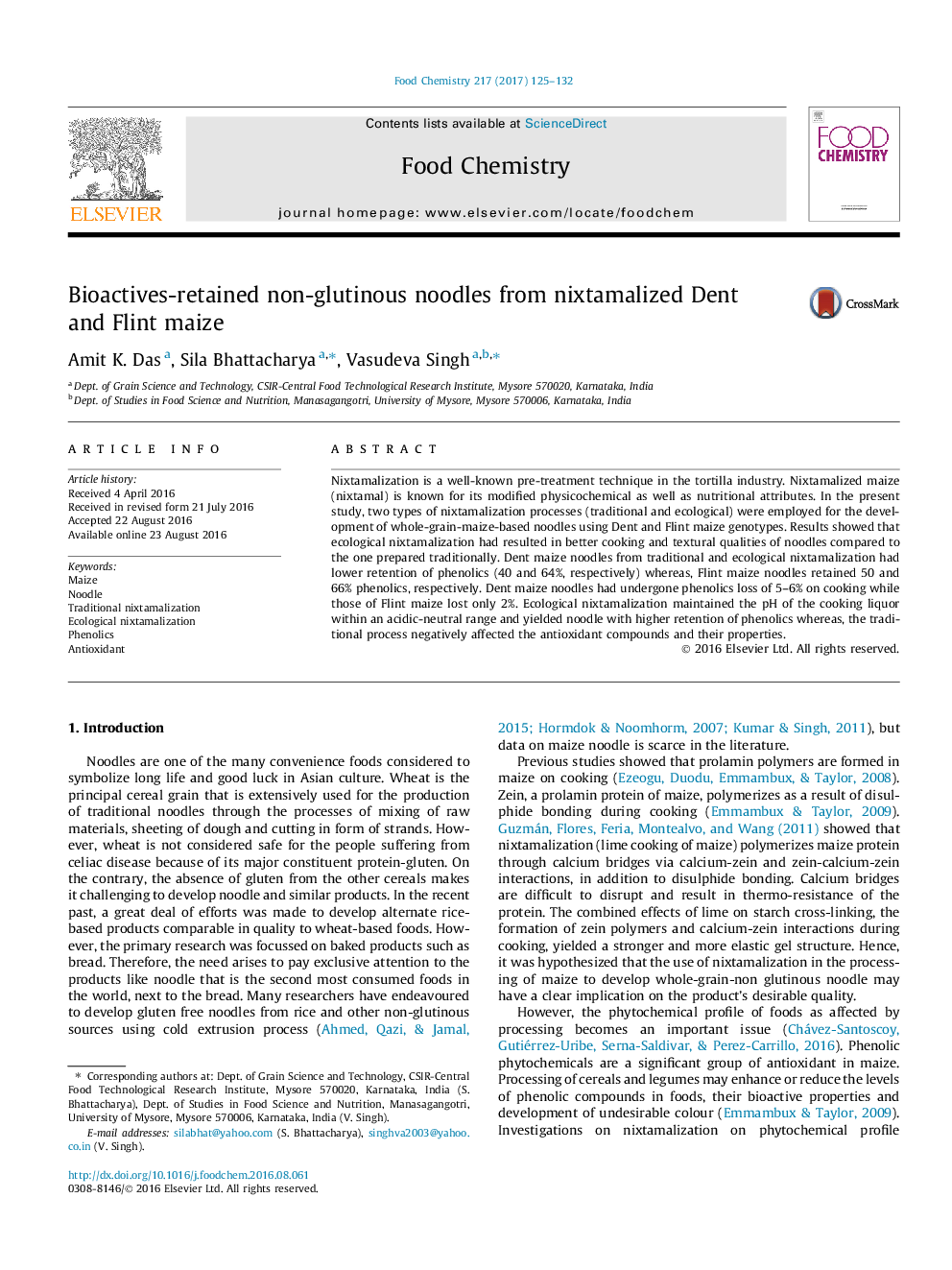| Article ID | Journal | Published Year | Pages | File Type |
|---|---|---|---|---|
| 1184740 | Food Chemistry | 2017 | 8 Pages |
•Nixtamalization of Dent and Flint maize was used for the development of noodle.•Ecological nixtamalization yielded noodle of superior cooking and textural qualities.•Noodle from Dent maize demonstrated lower retention of phenolics than that of Flint.•Upon cooking noodle from Flint maize had 2% phenolic loss whereas that of Dent 5–6%.
Nixtamalization is a well-known pre-treatment technique in the tortilla industry. Nixtamalized maize (nixtamal) is known for its modified physicochemical as well as nutritional attributes. In the present study, two types of nixtamalization processes (traditional and ecological) were employed for the development of whole-grain-maize-based noodles using Dent and Flint maize genotypes. Results showed that ecological nixtamalization had resulted in better cooking and textural qualities of noodles compared to the one prepared traditionally. Dent maize noodles from traditional and ecological nixtamalization had lower retention of phenolics (40 and 64%, respectively) whereas, Flint maize noodles retained 50 and 66% phenolics, respectively. Dent maize noodles had undergone phenolics loss of 5–6% on cooking while those of Flint maize lost only 2%. Ecological nixtamalization maintained the pH of the cooking liquor within an acidic-neutral range and yielded noodle with higher retention of phenolics whereas, the traditional process negatively affected the antioxidant compounds and their properties.
